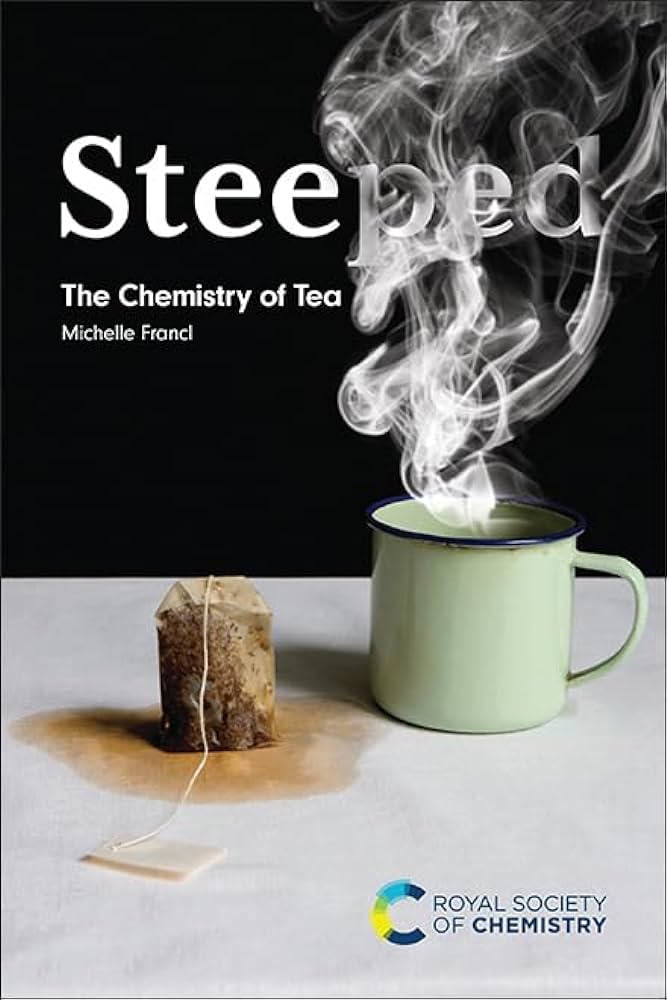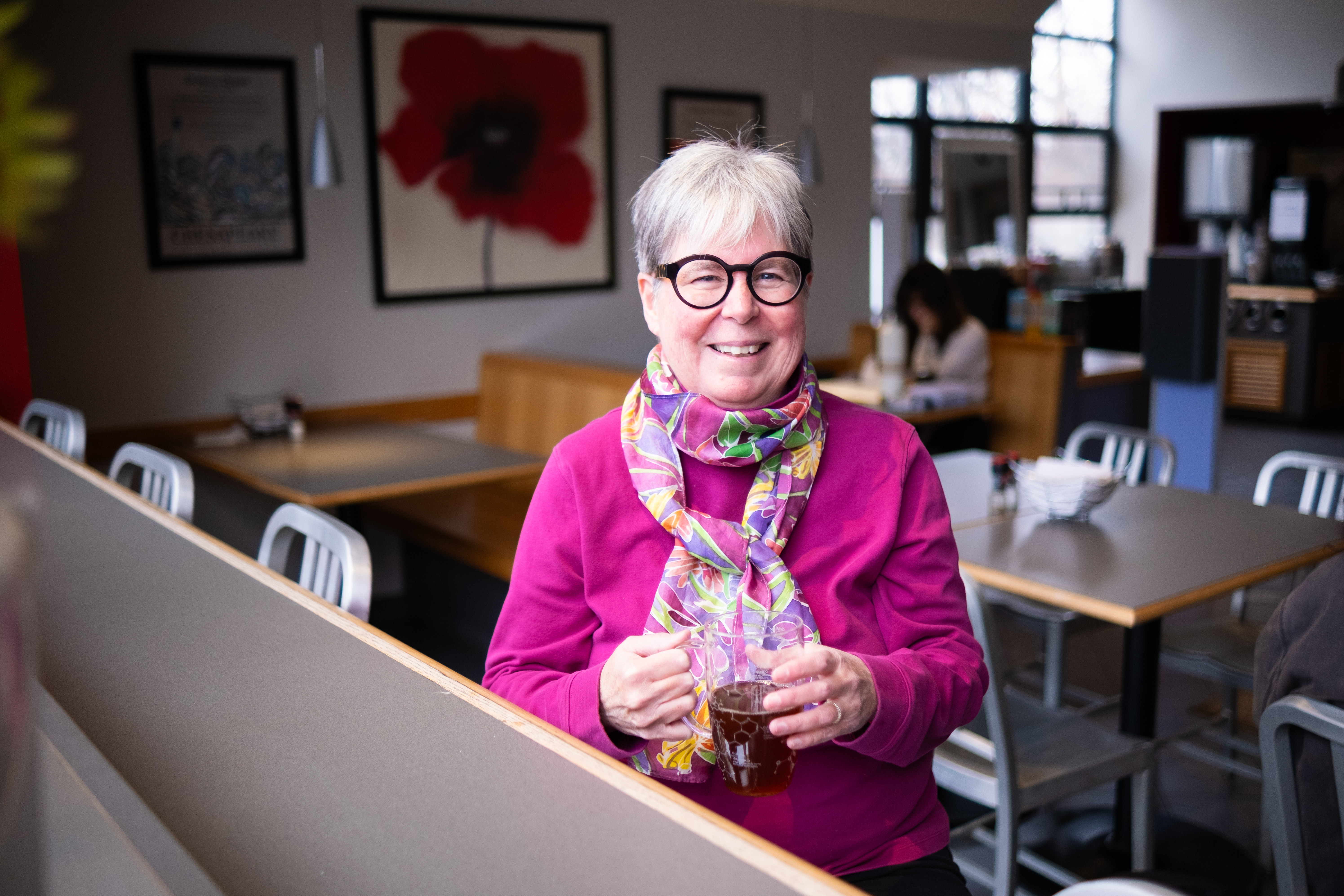Global interest in new tea book brewing thanks to salted tea tip

A top tea tip from one of our new books has raised eyebrows around the world this week: adding a pinch of salt.
Cuppa connoisseur Dr Michelle Francl’s quest for brew-topia has seen her read more than just tea leaves to produce her new book, Steeped: The Chemistry of Tea.
Dr Francl is the Frank B. Mallory Professor of Chemistry at America’s Bryn Mawr College. The celebrated chemist has devoured more than 500 scientific papers – and countless cups of tea – since starting her research for the book.
Some of Dr Francl’s research almost beggars be-leaf, including testing methods that date as far back as the eighth century, trying to decaffeinate tea with vodka, and even wiring up her teapots and cups for science.
The UK’s devotion to tea is steeped in history, with Brits gulping down approximately 100 million cups each day. But Dr Francl believes even the biggest tea lovers can improve their skills by putting her research into practice.
The idea of adding a pinch of salt to tea has particularly captured the media's and the public's attention. You can find a series of tips from the book at the end of this article.
The book caught the attention of the US Embassy and the British Ambassador in the USA, with the likes of the BBC, New York Times and most UK national newspapers soon quizzing the American on her labour of love.
Dr Francl (below) said: “Writing Steeped was great fun, a chance to combine my love for chemistry and my delight in a really good cup of tea. Even after all these years of drinking tea and doing research in chemistry, I learned new things about what is in my cup and how to make the very best cup of tea.

“I read hundreds of research reports and tried everything from adding a dash of salt to a cup to trying to decaffeinate tea with vodka in my quest to understand how a cup of tea comes together.
“I enjoyed the challenge of explaining it in a way that people who are not chemists can appreciate the beauty of the chemistry happening and can use what they've learned to make a great cup of tea.”
Professor Gill Reid, our president, added: “Chemistry impacts everything, from developing life-saving medicine to creating the materials needed to build the green technology of the future – and chemistry even impacts the quality of your tea. Chemis-tea, if you like!
“Dr Francl's fantastic new book is full of fascinating insight into our favourite cuppa and I look forward to trying out her scientifically sound top tips.”
Steeped explores the science behind the sensations millions of Brits enjoy every day. In it, Dr Francl also reveals whether tea and caffeine really are addictive, how sugar and spices affect the drink’s quality, how much difference a teapot or cup actually makes, and what is responsible for tea’s calming effects.
Steeped: The Chemistry of Tea, by Dr Michelle Francl, is now available at books.rsc.org or from Amazon.
So according to Dr Frankl, what are some of the tips you can use to make a better brew?
- Pass the salt please: Reduce the bitterness in your cuppa with a tiny pinch of regular table salt. Sodium ion is a key element of salt and interacts with the chemical mechanism that produces the perception of a bitter taste.
- Warm milk is the cream of the crop: If you use a teabag, add milk after pouring the tea and, if possible, heat it gently before mixing. This will reduce the chance of curdling and better control the rate at which the tea cools. But note the more milk you add, the lower the amount of caffeine.
- Don’t shape up for your cuppa: Tall and cylindrical cups are a mug’s game as these expose a greater surface area, which means your brew will cool down quicker. Short and stout keeps your tea hotter and is therefore the way to go if you want to extract as much of the taste and good stuff as possible.
- Bin the bag and leave the leaves: Dispose of used tea leaves and teabags after one use as virtually all the caffeine and antioxidants in them are gone within a minute of steeping. Make sure you dunk and squeeze to get the most out of them while you can!
- Heat up the cup (or pot): Pre-warming a teapot helps it to maintain a higher temperature while steeping, increasing the amount of caffeine and antioxidants in the cup, but it will also help the contents of a teapot or teacup stay warm longer once the infusion is complete.
- Give tea room to revolve: Teabags are convenient but, if possible, use loose leaves and tea baskets. Wet tea leaves can expand to four or five times the size of dry ones so if you leave more room for them and the water to circulate, you extract more of those fragrant compounds within.
- Never put tea in a microwave: Water boiled in the microwave reaches its boiling point so quickly that little of the dissolved oxygen or carbon dioxide has a chance to escape, resulting in a higher likelihood of a scum forming. However, adding lemon juice can reduce the odds of this by lowering the pH while citrate ions can surround calcium and magnesium ions, preventing them forming solids.
- DIY decaffeination: If you want your tea hit but without the buzz, take a teabag, add 60ml of boiling water and then let it steep for 30 seconds. Discard the water, which will contain more than 80% of the caffeine and re-brew for five minutes in a fresh cup of boiling water.
- Longer steeping means bitter, not better: Caffeine is hydrophilic, which means water-loving, so it is released quickly but some of the bitter compounds – for example, tannins – do not dissolve as quickly. This means that if you leave tea to steep in very hot water, your caffeine hit won’t change much but the bitterness will.
- Keep it cosy: Use a fabric or felt tea cosy on a teapot and try to cover your cuppa to keep it hotter for longer as the process of convection, where fast-moving molecules move away from a hot object and thus take some of its energy with them, will see it cool quicker otherwise. Cosies essentially trap air, which slows heat transfer and keeps your tea toasty.